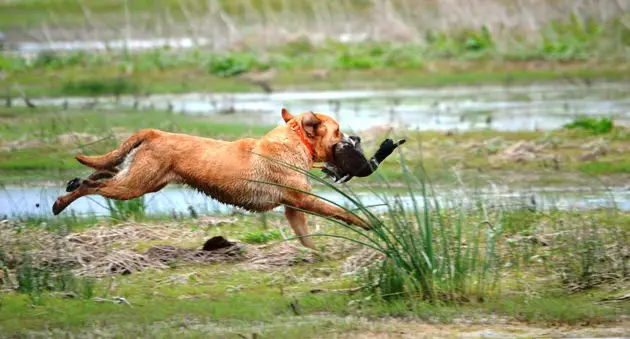This in from police, in their own words. Ed
Those involved in poaching are being warned to stay away from Hampshire and the Isle of Wight following the successful prosecution of three men.
In a case heard today at Aldershot Magistrates Court, a 31 year old man from Southampton, and a 25 year old man from Totton both pleaded guilty to entering land at night as a trespasser with the intention of taking game in Quarley, near Andover.
One was fined a total of £825 and the other was fined a total of £620. The two dogs involved in the offences were ordered to be forfeited and re-homed by the police.
A not guilty plea was accepted by a third defendant.
Dogs seized
Last week, Basingstoke magistrates fined a 46 year old man from Yateley £165 plus court costs, after he entered a guilty plea for daytime poaching in Whitchurch. The court ordered two of his three dogs that were seized to be forfeited.
These are the first prosecutions by officers in Hampshire where courts have ordered the forfeiture of dogs which have been used in poaching or hare coursing activity.
The successful partnership agreements put in place by the force’s dedicated Countrywatch officers allows forfeited dogs to be re-homed across the UK with responsible owners.
The dogs used in these offences are considered a factor in the commission of a crime by the offenders and are seized as evidence. Historically, offenders have considered themselves at low risk of sanction; even if prosecuted, dogs and vehicles would not be seized, allowing them to continue their criminal activity.
Impact of poaching and hunting
Many people are unaware of the significant community impact of poaching and hunting offences. Not only do those involved cause thousands of pounds worth of criminal damage to boundary fences on farmland, or the destruction of crops, they also create fear in isolated communities by trespassing on land with dogs and vehicles and intimidating landowners.
This type of criminal activity is well organised, and offenders often travel significant distances to take part – particularly in hare coursing events.
In addition, this sort of offence can adversely affect the hare population. The Brown Hare is a species that has declined markedly in numbers in the UK over the last century and this sort of offence can harm the recovery of the species.
An excellent result
Chief Inspector Simon Dodds, strategic lead for rural policing, said:
“These fines and forfeitures are an excellent result for these types of offences and provide a significant punishment and deterrent to these offenders.
“By taking robust action we can prevent further offences being committed and give a strong message to those that commit these offences. If we catch you, your dogs and vehicles will be forfeited. This zero tolerance approach will continue to be our response to this type of crime to support rural communities and make Hampshire a hostile place for criminals. It also supports our wider plan to disrupt criminal activity.”
Assistant Police and Crime Commissioner Judy Venables said:
“We are delighted with the outcome of these court cases. The Commissioner’s Police and Crime Plan sets challenges to the Chief Constable to reduce the gap in the solved crime rate between rural and urban areas. These prosecutions relate directly to the constabulary’s rural crime strategy and it reflects the efforts of all those involved in successfully bringing this case to court, demonstrating the effectiveness of the criminal justice system. The outcome sends out a strong message to criminals who commit crime in Hampshire’s rural communities, that the police are steadfast in their pursuit to identify offenders, bring them to justice and ensure victim satisfaction.”
Visit www.hampshire.police.uk for more information about rural policing issues and to contact your local Countrywatch team.
Anyone with information about crime in rural communities can call 101 or the Crimestoppers charity anonymously on 0800 555 111.
Image: stevegoeringer under CC BY 2.0





